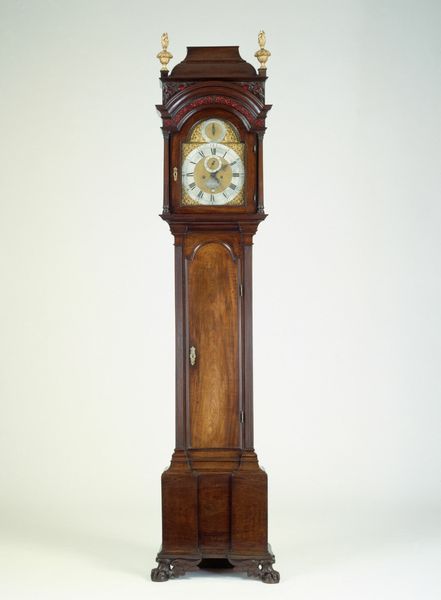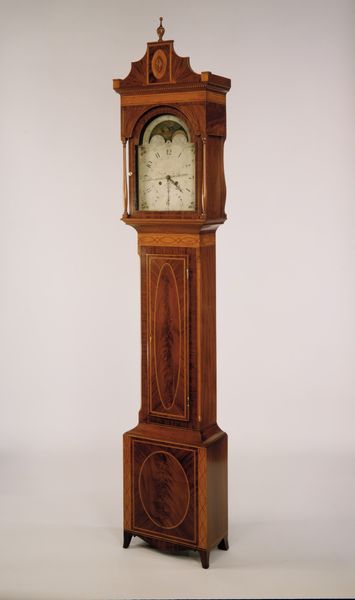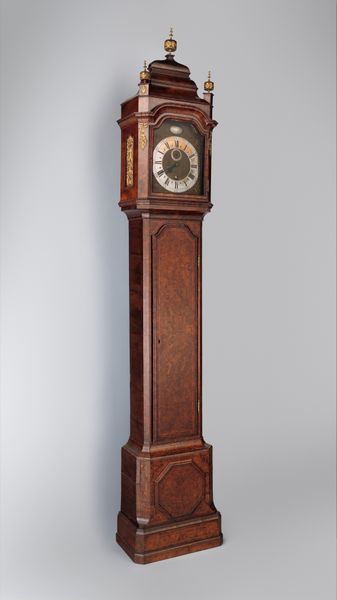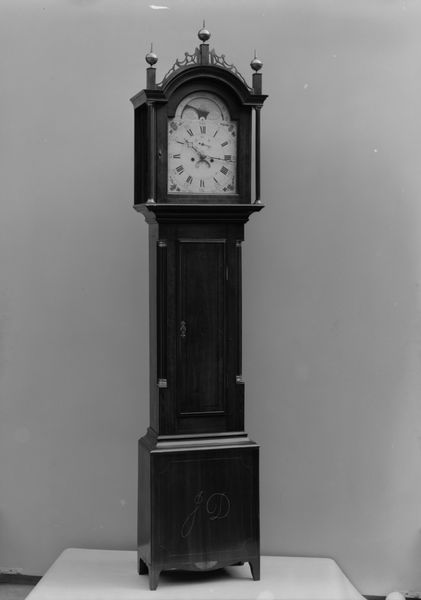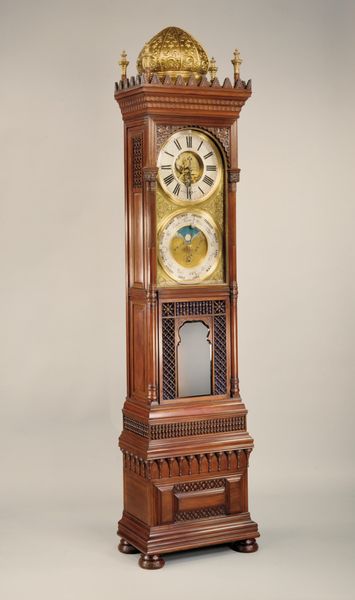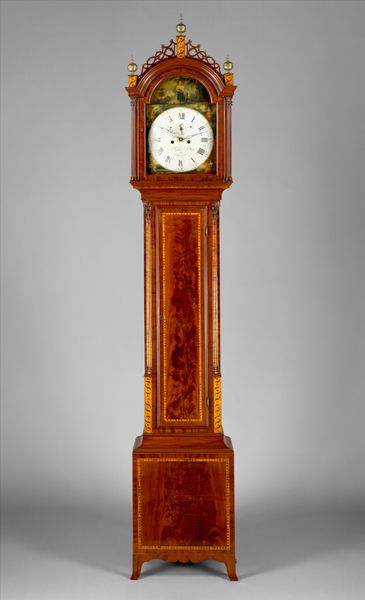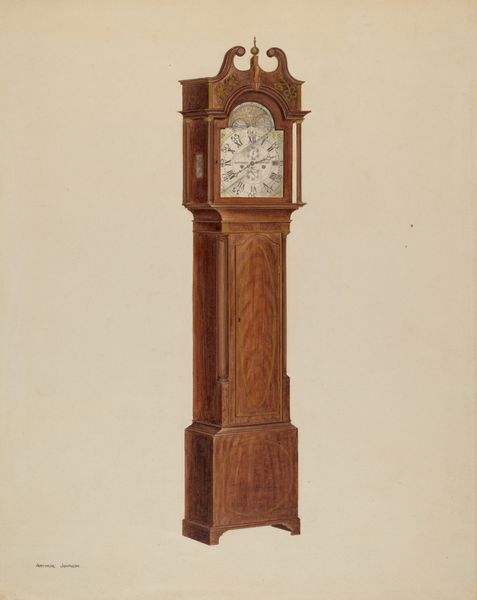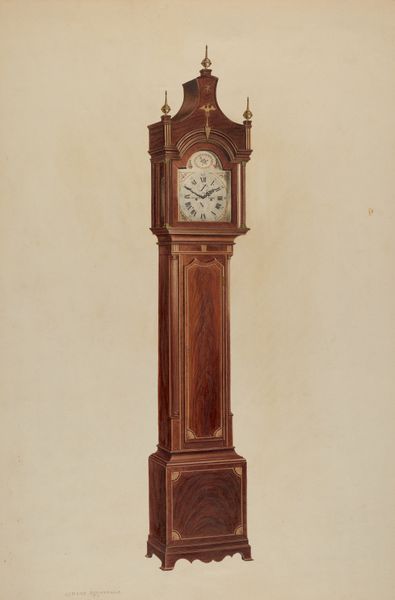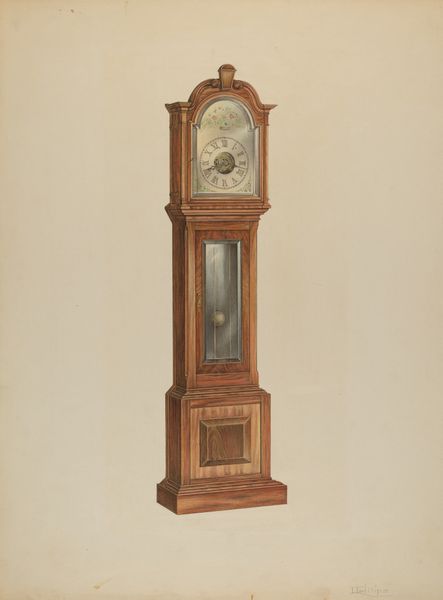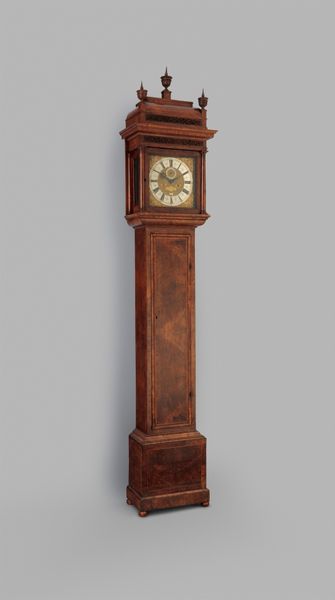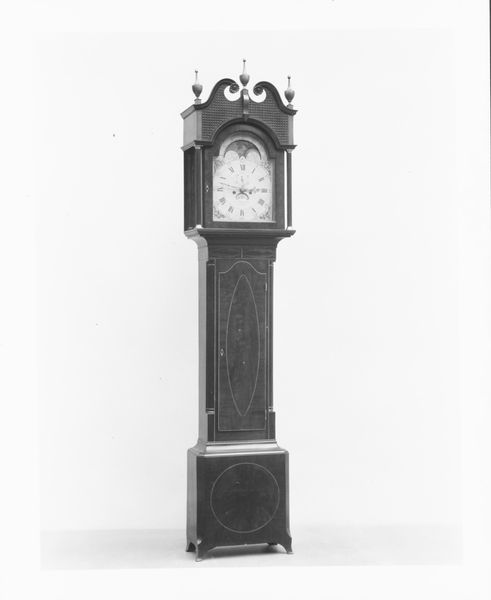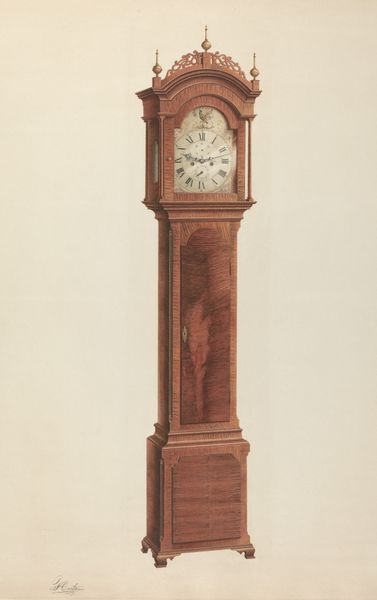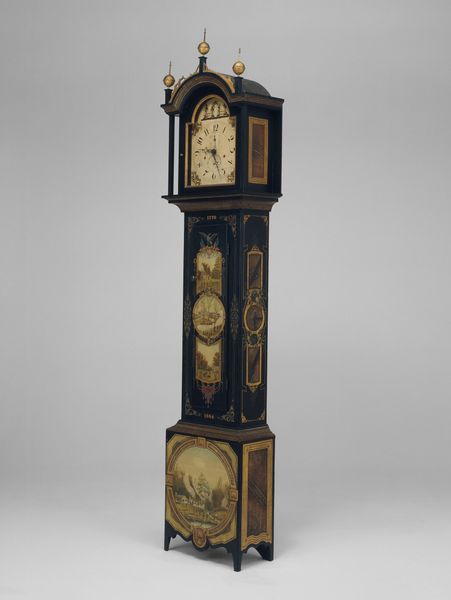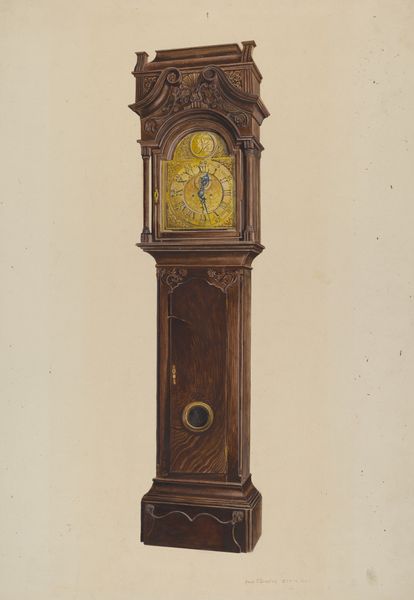
carving, metal, wood
#
carving
#
baroque
#
metal
#
sculpture
#
home decor
#
ceramic
#
united-states
#
wood
#
decorative-art
Dimensions: 104 1/2 x 20 3/8 x 10 3/4 in. (265.4 x 51.8 x 27.3 cm)
Copyright: Public Domain
Editor: Standing before us is William Claggett's "Tall Clock," crafted between 1740 and 1750. It's an imposing object, a fascinating marriage of wood, metal, and carving. I find the wood grain incredibly beautiful. How do you read this object? Curator: From a materialist perspective, it’s essential to consider how this clock embodies labor and social context. The quality of the wood, the carving, the metalwork – these aren't just aesthetic choices. They represent a considerable investment of skilled labor and the resources available to Claggett and his patrons in early America. Editor: That makes me think about who would have been able to afford a clock like this back then. Curator: Precisely. This wasn't a mass-produced item. The creation and purchase of such a clock would have signified wealth and status within its community. Also, think about the origin of these materials. Where was the wood sourced? Were metals imported? Each answer expands the socio-economic context of the piece. Consider also the value that "decorative art" such as this held. Editor: So, beyond telling time, it's telling a story about early American society. Were clocks always considered a kind of sculptural, decorative object? Curator: The clock transcends mere functionality; it’s a deliberate performance of refinement. Notice how the integration of carving elevates it beyond mere utility. How does the presence of ceramics play into its status? Editor: So it's about more than just the object itself but the world around it and what the object signifies for society. I see that now. Thank you! Curator: And in examining its creation and function, we start to appreciate its deeper cultural meaning.
Comments
No comments
Be the first to comment and join the conversation on the ultimate creative platform.
